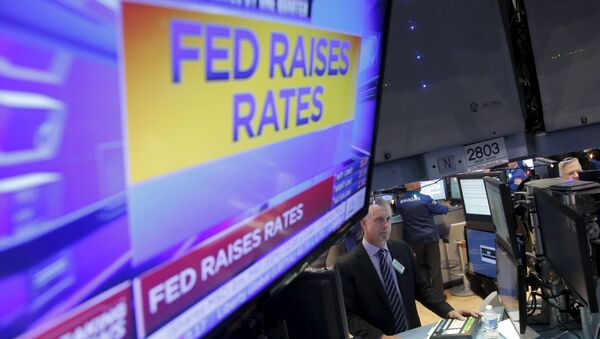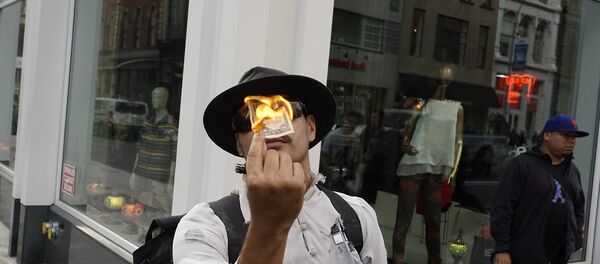Earlier in the day, the Russian Foreign Ministry in a statement said that US Skripal-related sanctions unveiled last week calling for inspections undermines the authority of the Organization for the Prohibition of Chemical Weapons (OPCW), which confirmed that Russia had destroyed all of such weapons.
"The best way to think about the role of sanctions in US foreign policy is to regard it as an addiction," Petro said on Monday. "They offer the perfect escape from the real, but tedious world of diplomatic negotiation."
The US inability to change the behavior of even the most "rinky-dink" nations, Petro observed, has left those in power enormously frustrated.
"It [frustration] leads… to the search for compensatory mechanisms that can assuage this sense of failure, and reassure the US electorate of America’s perpetual global dominance," he said. "Sanctions fit the bill perfectly."
"Sanctions now provide the only semblance of calm, the only relief that politicians can rely on, and so resort to them becomes habitual," Petro said. "Eventually, however, the political ‘high’ provided by sanctions wears off: The nastiness of the world intrudes and once again politicians become desperate for another fix."
Ukraine, for example, will be hurt the most by US sanctions that target Russian banks, flights, natural gas, payment services, and potentially railway traffic.
"In reality, of course, all these services continue since there is a high demand for them in Ukraine, only now at a much higher cost to Ukrainians," Petro explained. "Therefore, to paraphrase a famous saying, when you go the route of sanctions, you should dig two graves: One for your rival’s economy, and one for your own."
The US government and its allies have blamed Russia for the March 4 chemical attack on double agent Sergei Skripal in Salisbury, England. Russian authorities have strongly refuted the allegations as groundless, citing lack of evidence and London’s refusal to cooperate in a probe.
Nicolai N Petro is Professor of Peace Studies and Nonviolence at the University of Rhode Island. His latest book, "Ukraine in Crisis", was published by Routledge in 2017.





